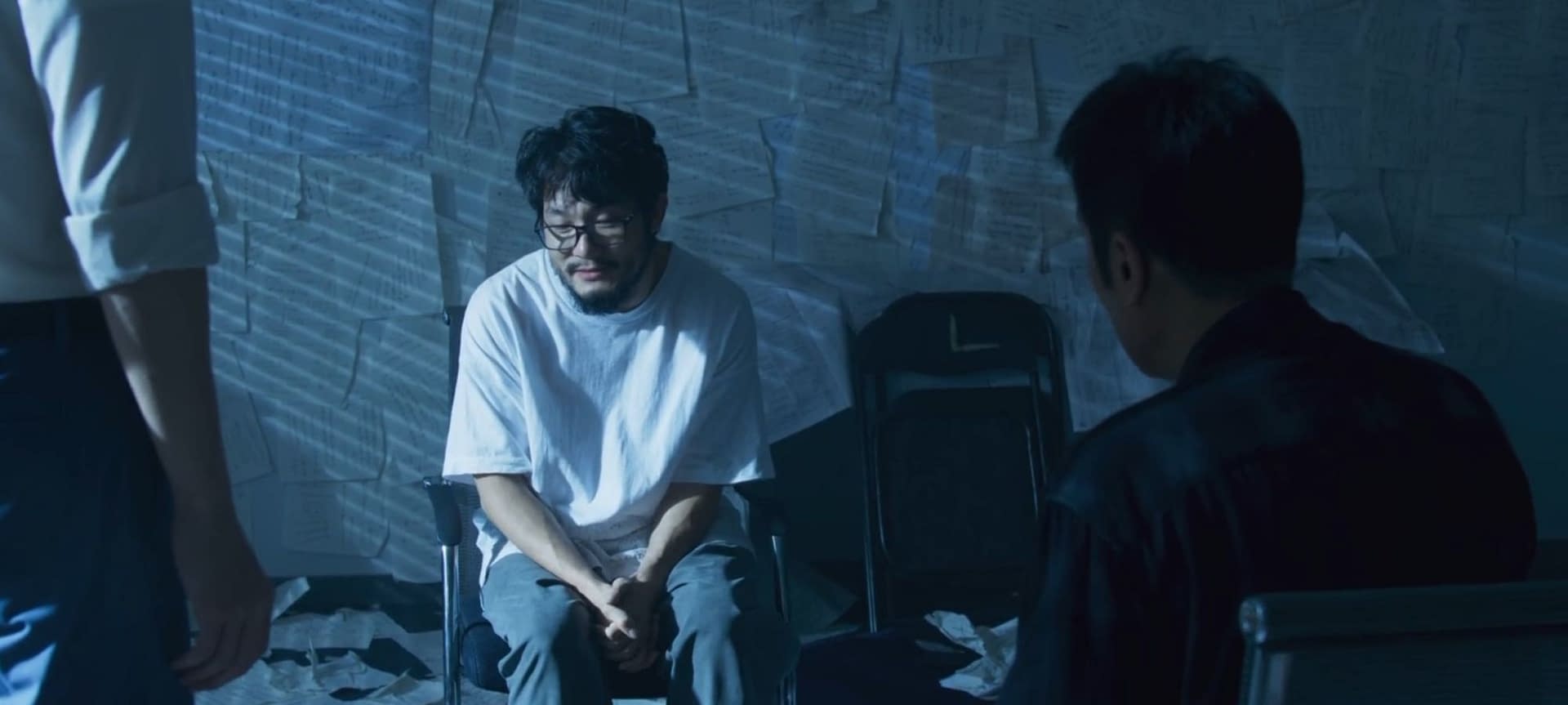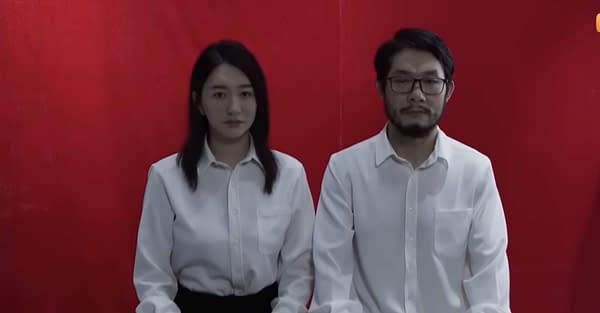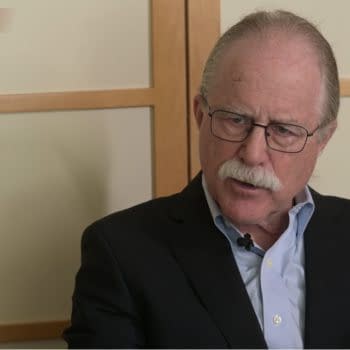Posted in: Netflix, TV | Tagged: 3 Body Problem, Edward Zhang, Liu Cixin, netflix, Rosalind Chao, TenCent, Wang Ze Wen, Yu Hewei, Zine Tseng
3 Body Problem: The Saddest Character Isn't In Netflix's Adaptation
The saddest character in 3 Body Problem was left out of the Netflix version but has a whole subplot to himself in the Chinese TV version.
Article Summary
- Netflix's 3 Body Problem omits Wei Cheng, the saddest character with a powerful subplot.
- Zhao Jian's portrayal as Wei Cheng in Tencent's adaptation showcases a unique genius.
- Autistic savants in 3 Body Problem have significant roles and add depth to the story.
- Differences in character treatment between Netflix and Chinese versions are stark.
The Netflix adaptation of Liu Cixin's 3 Body Problem is like a Cliff's Notes version of the first book in the trilogy, rushing through the bullet points to get to the big reveals and pulling in parts of the second and third books to set up the whole saga. It cuts out entire characters and subplots, not to mention condensing many of the complex and intricate Scientific ideas and mathematics to the point of "blink and you miss them" reveals. All this was done in favour of reconfiguring the heroes of the three books into a core group of close friends whose stories and relationships are designed to be more emotional and poignant. This means the series completely cuts out the Chinese TV series' saddest character, a math genius named Wei Chang.

3 Body Problem's Tragic Savant
In the Chinese TV series of 3 Body Problem, Wei Cheng is played by Zhao Jian with Method-level immersion. The Tencent series' sole screenwriter, Tian Liang Liang, deepens Wei Cheng's entire life story for the series, showing his life as one of extreme isolation and alienation. Wei Cheng is described as having a form of synesthesia when it comes to numbers. Zhao Jian plays him as being high on the autism spectrum and barely able to function in life. He retreats to a Buddhist monastery to find peace away from a world he doesn't know how to live in to deal with his numbers. When scientist and senior pro-alien cult leader Shen Yufei (Li Xiao Ran) visits the monastery and comes across him, she recognizes his genius, discovering that the equation he's obsessively working on is an attempt to solve the actual 3 Body Problem, a puzzle he came across by himself during his meditations. Shen Yufei marries him and promises to give him a safe home where he would have access to the best computers to work on the solution for the 3 Body Problem.

Wei becomes a target of the extremist faction of the cult because if he finds the mathematical solution to the 3 body problem, the San-Ti would be saved and not need to invade Earth. The extremists want the aliens to invade and exterminate humanity. When Shen Yufei dies after a failed assassination on Wei Cheng's life, Detective Da Shi (Yu Hewei) takes him into protective custody, and work with Wang Miao (Edward Zhang) to get him to open up and tell them his entire story, why he was a target and how his wife was killed so Da Shi can make arrests. The scenes of Da Shi trying desperately to be patient as Wei Cheng insists on his favourite booze and cigarettes at specific times of the day in between his calculations before he can even sit down and tell them anything are comedy gold, but don't stop Wei Cheng from being a tragic character.

Wei Cheng's autism doesn't mean he's devoid of emotions, more that he processes them differently, and Da Shi and Wang Miao discover that once Wei Cheng finds there is no solution to the 3 Body Problem, he begins working desperately on another equation: an attempt to quantify his grief over the death of his wife using math. That's where the series leaves him: trapped in his mind, trying to come to terms with his loss where he will need continuous care for the rest of his life because he is completely unable to take care of his basic needs. He becomes an embodiment of the endless spiral of unsolvable Science in the story, the man trapped in the 3 Body Problem forever. We never see him again.

The Importance of Autistic Savants in the Story
Both the book and the Chinese TV version of 3 Body Problem feature characters on the autism spectrum who have a major role in the story, though the TV series doesn't spell it out. However, the actors playing those characters have read the book and seemed to play that trait, making it implicit in their performances. Yang Dong (He Du Juan), Ye Wen Jie's daughter, is described in the book as a math and science savant on the autism spectrum and follows her mother's footsteps into the field. He Du Juan plays Yang Dong as someone on the spectrum with her boyfriend Ding Yi (Eric Wang) patiently waiting for her to come to him. She has made Physics her entire world, and when she finds that Science is broken, her world ends. She agrees to marry Ding Yi and live a "normal" life, but when she discovers her mother was the one who betrayed the world to aliens that brought about the destruction of science, it's too much for her and leads to her suicide. He Du Juan's performance gives Yang Dong an air of doom, sadness and melancholy, like an angel who can't live for long on Earth.

Autism is a genetic condition passed down from parents, so it's possible that Ye Wen Jie might have been on the spectrum as well; hence her genius with astrophysicist and her father might have been neurodivergent. It's never mentioned in the book, but his absolute refusal to denounce his belief in Physics during the Cultural Revolution might be a symptom of his autism, and it leads to his death. Ye Wen Jie's ability to hide her emotions and thoughts and stay inside her head no matter what happens might also be a function of being on the spectrum, and Wang Ze Wen's performance as the younger Ye might hint at that throughout the series. If she had autism, Ye Wen Jie was certainly on the high-functioning side of the spectrum. The Netflix version does not depict the younger and older versions of Ye Wenjie as neurodivergent, and neither Zine Tsent nor Rosalind Chao played her as such. Wang Ze Wen and Chen Jin's performances in the Chinese version, on the other hand, are layered and complex enough for us to read that into it if we so choose. It just shows how complex the character is and how much the Netflix version reduced her into a single type with less nuance: the tragic villain.
Liu Cixin must have a reason for mentioning Yang Dong's autism but never explained why it needed to be a factor, but it must have been important enough for him to bring it up. That and creating characters whose behaviour and thinking hinted they were on the spectrum. We can only speculate why, but they add to the rich tapestry of science, character, and thought experiments that define the story.
3 Body Problem is streaming on Netflix.














